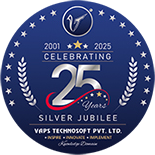Now that we’ve highlighted how essential it is to have an ERP system in place for your business, let’s dive into why choosing the right Enterprise Resource Planning (ERP) software is so important for organizations looking to optimize their operations and boost efficiency. In this article, we’ll take a closer look at the leading ERP systems available in 2025, offering insights into their features, pricing, and deployment options to help businesses make well-informed choices.
What is ERP?
Enterprise Resource Planning, or ERP, is all about integrated software solutions that help manage essential business processes like finance, human resources, supply chain, and customer relations. By bringing these functions together into one cohesive system, ERP software allows for a smooth flow of information between departments, which leads to better decision-making and improved operational efficiency.
Importance of ERPs in 2025
In the fast-paced world of today’s market, ERPs in 2025 are crucial because they:
- Boost Efficiency: By automating routine tasks, they cut down on manual errors and give employees more time to focus on strategic initiatives. –
- Enhance Data Accuracy: With centralized data storage, organizations can ensure that their information is consistent and reliable.
- Facilitate Scalability: Modern ERP solutions are designed to grow with your business, easily handling more transactions and users as needed.
- Compliance: Many ERP systems come equipped with features that help businesses stay in line with industry regulations and standards.
When it comes to choosing the right ERP software, businesses should keep a few key criteria in mind:
- Functionality: Make sure the ERP system addresses all the essential business processes and includes modules that are relevant to your specific industry.
- Scalability: Look for a system that can grow alongside your business, managing increased workloads without any hiccups.
- User-Friendliness: A user-friendly interface can significantly cut down on training time and boost user adoption rates.
- Customization: The ability to customize the software to meet your unique business needs can really enhance its overall effectiveness.
- Integration Capabilities: It’s crucial that the ERP can seamlessly integrate with your existing systems and any third-party applications to ensure smooth operations.
- Vendor Support: Having dependable customer support and regular updates is vital to keep the system up-to-date and functioning well.
When you’re on the hunt for an ERP system, there are some key features you definitely want to keep an eye out for:
- Financial Management: Look for robust tools that help you handle everything from accounting to budgeting and financial reporting.
- Human Resources Management: Make sure it has modules for payroll, recruitment, performance evaluations, and keeping track of employee records.
- Supply Chain Management: You’ll want tools that help you manage procurement, inventory, order processing, and logistics seamlessly.
- Customer Relationship Management (CRM): Features that help you manage sales, marketing efforts, and customer service interactions are a must.
- Business Intelligence: Analytics and reporting tools that give you insights into how your business is performing can be a game changer.
- Mobile Accessibility: Being able to access ERP functions on mobile devices adds a layer of flexibility and responsiveness that’s hard to beat.
Cloud vs. On-Premises Solutions
When it comes to deploying ERP systems, you generally have two main options:
- Cloud-Based ERP: This is hosted on the vendor’s servers and accessed through the internet. The perks? Lower upfront costs, scalability, and the ability to access it remotely. Just keep in mind the importance of data security and the ongoing subscription fees.
- On-Premises ERP: This option is installed directly on your company’s servers. It gives you more control over your data and allows for customization, but it usually comes with a higher initial investment and ongoing maintenance costs.
Choosing between cloud and on-premises really boils down to your budget, IT infrastructure, how sensitive your data is, and what your specific business needs are.
Top 8 ERP Software Options in 2025
1. VAPS ERP
VAPS ERP shines as the most comprehensive and purpose-built ERP solution tailored specifically for educational institutions in 2025. Unlike generic ERP software, VAPS ERP is thoughtfully crafted to meet the unique academic and administrative needs of schools, colleges, and universities. It covers everything from managing student information and tracking attendance to handling fee structures and scheduling exams, all within a centralized platform that streamlines daily operations. Its user-friendly interface makes it easy for staff and faculty to adopt, while its powerful reporting features support smarter academic planning. Although it’s primarily deployed on-premises, VAPS ERP also offers cloud capabilities, providing flexibility without sacrificing control. For educational institutions aiming to boost operational efficiency, VAPS ERP is more than just a solution- it’s a strategic asset. Pricing is available upon request, with customized plans that cater to the institution’s size and specific needs.
2. NetSuite ERP
NetSuite ERP is a cloud-based enterprise resource planning solution that’s perfect for businesses looking for an all-in-one platform. It combines financial management, order processing, production oversight, and supply chain capabilities into a robust package. The real beauty of NetSuite lies in its scalability—whether you’re a startup or a well-established enterprise, its modular design allows you to grow without the hassle of switching systems. It integrates effortlessly with CRM and e-commerce platforms, giving you complete visibility and control. With subscription-based pricing that varies based on the number of users and modules, NetSuite is a dependable choice for businesses seeking flexibility and modern automation.
3. SAP S/4HANA Cloud
SAP S/4HANA Cloud empowers businesses with enterprise-level capabilities, especially those that need advanced analytics and real-time decision-making. With its in-memory database and lightning-fast data processing, this ERP is perfect for organizations aiming to modernize their complex operations. It covers everything from financial planning and procurement to manufacturing and supply chain management, all through a smart, cloud-first interface. SAP’s solution shines particularly for multinational companies, thanks to its strong localization and compliance features. Plus, the pricing is tailored, making it suitable for both mid-sized and large businesses based on their specific needs.
4. Microsoft Dynamics 365 Business Central
Microsoft Dynamics 365 Business Central is a go-to option for small to mid-sized businesses, thanks to its intuitive interface and seamless integration with other Microsoft products. It combines financials, sales, project management, and supply chain operations into a single, unified system. Built on Microsoft’s reliable cloud infrastructure, it guarantees high availability and security. The modular design allows businesses to select exactly what they need while providing an easy upgrade path. With pricing options that include Essentials or Premium packages, it offers a budget-friendly ERP solution without skimping on functionality.
5. Oracle Fusion Cloud ERP
Oracle Fusion Cloud ERP is an AI-powered solution that provides real-time insights and automation across various business functions. Tailored for enterprises that value innovation and agility, it supports everything from finance and procurement to project and risk management. Oracle stands out with its commitment to continuous product development and a focus on predictive analytics, helping organizations stay ahead in competitive landscapes. While pricing is customized based on business requirements and chosen modules, Oracle Fusion delivers impressive scalability and security, making it a reliable choice for large, fast-paced enterprises.
6. Infor CloudSuite
Infor CloudSuite delivers tailored ERP solutions designed for specific industries, making a significant impact in sectors like manufacturing, healthcare, and retail. What really makes it stand out is its in-depth functionality that aligns perfectly with the unique processes of each industry, allowing for quicker implementation and smoother integration. The suite comes packed with robust tools for managing finances, optimizing supply chains, overseeing human resources, and leveraging advanced analytics. With options for both cloud and hybrid deployment, it meets the diverse infrastructure needs of various businesses. Plus, pricing is flexible, based on the size and specific requirements of the company, making it a great fit for industry-focused organizations.
7. Epicor Kinetic
Epicor Kinetic is an agile ERP platform designed specifically for manufacturers and distributors. It merges a modern user experience with comprehensive operational control, addressing everything from shop floor activities to inventory management and financial oversight. The real strength of Epicor lies in its customizable workflows and industry-specific modules, especially suited for complex manufacturing settings. Whether you choose a cloud-based or on-premises solution, it gives businesses the flexibility to scale and tailor their deployment. Pricing is customized to fit the unique needs and modules of each business.
8. Acumatica Cloud ERP
Acumatica Cloud ERP is a versatile and scalable solution that’s perfect for small to mid-sized businesses on the rise. It’s well-known for its resource-based pricing model, which means you only pay for what you actually use, rather than the number of users. This makes Acumatica a fantastic value. Its cloud-native design ensures you have access to data in real-time, along with the ability to integrate seamlessly with third-party applications. Acumatica offers a broad range of features, including project accounting, CRM, inventory management, and custom development through open APIs. You can choose to deploy it in the cloud or on-premises, depending on what works best for your business.
FAQs
What is ERP software?
ERP software is essentially a collection of applications that bring together key business processes—like finance, HR, inventory, and customer management – into one cohesive system. This integration helps enhance data accuracy, boost operational efficiency, and support better strategic decision-making.
Why is ERP important for businesses in 2025?
As digital transformation continues to accelerate, ERP systems are crucial for helping businesses swiftly adapt to changes, manage remote or hybrid teams, streamline workflows, and access real-time insights. This makes them absolutely essential in 2025.
What are the common features of top ERP software?
– Financial management
– Inventory and supply chain control
– CRM and sales automation
– HR and payroll
– Business analytics and reporting
– Mobile access and cloud integration
How to choose the right ERP system?
1. Start by defining your business needs and goals
2. Pinpoint the essential features and any industry-specific requirements
3. Assess scalability and integration needs
4. Compare different pricing models and deployment options
5. Request demos and evaluate vendor support
Are cloud-based ERP systems better than on-premises solutions?
Cloud ERP provides flexibility, scalability, and lower upfront costs, making it a great fit for growing or remote-friendly businesses. On the other hand, on-premises ERP gives you more control and customization, which can be beneficial for industries that have strict compliance or data security requirements. Ultimately, the best choice depends on your organization’s infrastructure and priorities.












